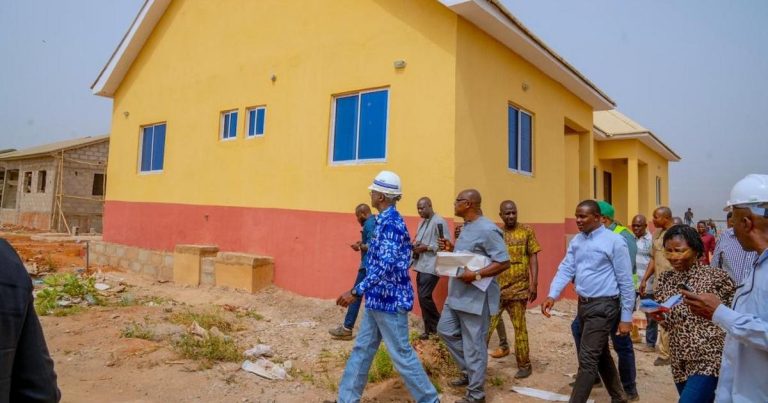The Minister of Housing and Urban Development, Ahmed Dangiwa, has called for a transformative shift towards green, sustainable, and climate-smart housing in Nigeria.
Speaking at the 2024 Archibuilt Exposition organized by the Nigerian Institute of Architects (NIA) at the Rainbow Event Centre in Abuja, Dangiwa urged professionals in the housing sector to embrace innovative and sustainable solutions to meet the country’s growing housing needs.
Highlighting the critical need for eco-friendly and energy-efficient housing designs, the Minister emphasized the importance of adopting new technologies that reduce carbon emissions and conserve resources.
“We’ve seen groundbreaking ideas from past expositions, such as sustainable building materials, energy-efficient designs, and zero-emission construction technologies. These innovations are crucial for shaping the future of construction in Nigeria and will have a global impact,” he stated.
Dangiwa also stressed the pivotal role that architects play in achieving the United Nations’ Sustainable Development Goal 11, which focuses on creating sustainable cities and communities. “Architects have the unique ability to design urban spaces that are not only environmentally sustainable but also inclusive, resilient, and adaptive to future needs,” he said.
The Minister addressed the pressing issues of rapid rural-urban migration and population growth, which are expected to strain Nigeria’s infrastructure as the country’s population is projected to exceed 400 million by 2050.
“The answer lies in developing homegrown solutions that are innovative and tailored to our unique challenges,” Dangiwa noted.
He also advocated for the use of local and indigenous materials in construction, such as bamboo, laterite, and compressed earth blocks, to preserve cultural identity and reduce carbon footprints.
“Optimizing the use of these materials will maintain the structural integrity of our buildings while supporting sustainable development,” he explained.
Dangiwa revealed that the ongoing development of the 3,112-unit Karsana Renewed Hope City, along with six other Renewed Hope Cities across the country, is undergoing EDGE Green Certification.
He assured that these projects would create the largest green footprint in the history of Nigerian housing development and potentially set a benchmark for the entire African continent.
The Minister also reiterated the government’s commitment to establishing six Building Materials Manufacturing Hubs, one in each geopolitical zone, as part of a broader strategy to promote local production and reduce the environmental impact of construction.
A task team has already submitted a report outlining the modalities for these hubs, which is currently under review for implementation.
Former Vice President Namadi Sambo, who was a special guest at the event, echoed the Minister’s sentiments, calling for a reimagining of cities as dynamic ecosystems that evolve with the times.
“We must invest in cities that enhance mobility, reduce congestion, and improve the quality of life for all citizens,” Sambo said.
Earlier, NIA President, Mobolaji Adeniyi underscored the importance of the expo in showcasing cutting-edge products, ideas, and technologies that will redefine Nigeria’s built environment.
“Our goal is to explore the intersection of architecture, technology, and innovation to create sustainable and resilient urban spaces,” Adeniyi stated.
The Archibuilt Exposition continues to serve as a platform for advancing sustainable practices in the Nigerian housing industry, aligning with global efforts to combat climate change and promote sustainable development.


